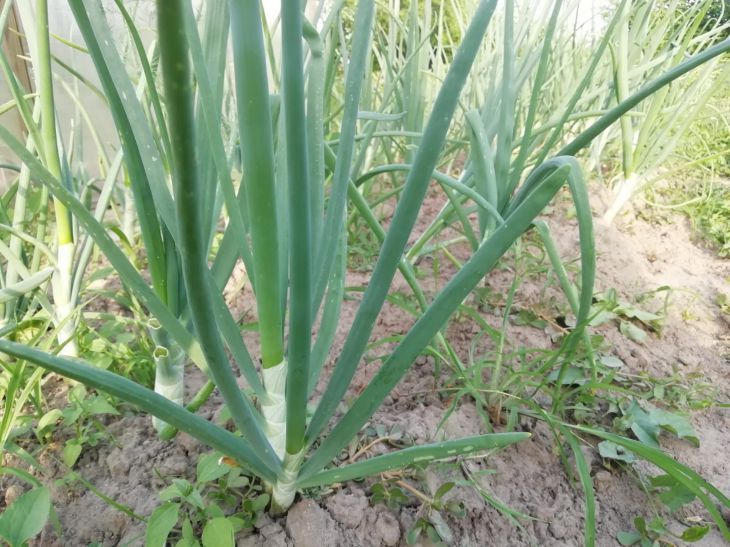How to feed onions in June to make them large: secrets of a successful harvest
In June, onions grow actively and require special attention. If you want to grow large, juicy heads, it is important to feed the plants correctly.
Without the necessary nutrients, onions may remain small and tasteless.
Many gardeners are concerned that their efforts do not produce the desired results.
How to avoid this problem and provide your onions with the necessary conditions for growth?
Nitrogen is a key element for growth
In the first half of June, onions need nitrogen, which stimulates the growth of green mass. Ammonium nitrate is ideal for this.

When adding nitrogen, it is important not to overdo it, so as not to cause an excess of greenery to the detriment of the development of the bulbs.
Nitrogen fertilizer should be applied in combination with watering so that it is better absorbed by plants.
Organic fertilizers for healthy soil
Organic matter plays an important role in onion nutrition. Manure or compost provides plants not only with nitrogen, but also with other important microelements.
Organic fertilizers improve the structure of the soil, promote better moisture retention and increase its fertility.
In June, you can use an infusion of mullein or chicken manure diluted with water. These fertilizers promote rapid growth and strengthening of plants.
Potassium and phosphorus for bulb formation
In the second half of June, onions need potassium-phosphorus fertilizers. Potassium strengthens the root system, increases resistance to diseases and adverse conditions.
Phosphorus, in turn, promotes the formation of large and dense bulbs.
Superphosphate and potassium sulfate can be used. These fertilizers should be applied to the soil, evenly distributed around the plants and embedded in the top layer of soil.
Ash is a natural source of nutrients
Wood ash is an excellent source of potassium and microelements. It helps strengthen onions and increase their resistance to pests.
Ash can be applied in dry form, sprinkling the soil around plants, or used to prepare an infusion for watering.
The use of ash reduces soil acidity, which has a beneficial effect on the growth of onions.
Pest and disease control
In June, onions are often attacked by pests and diseases. To prevent them, you can use folk remedies such as infusions of garlic, tobacco or onion peel.
These products not only repel pests, but also serve as additional feeding.
Regular treatments help maintain the health of plants and promote their better development.
The Importance of Regular Watering
Watering plays a key role in onion care. In June, it is necessary to provide the plants with sufficient moisture, especially in hot and dry weather.
Lack of water can result in slow growth and poor bulb quality.
Onions should be watered at the roots, avoiding water getting on the leaves, so as not to provoke the development of fungal diseases.
Mulching to retain moisture
Mulching helps to retain moisture in the soil and prevent it from drying out. Mown grass, straw or peat can be used as mulch.
Mulch also prevents the growth of weeds, which compete with onions for nutrients and moisture.
Proper mulching creates favorable conditions for the growth and development of onions, helping to grow large and healthy bulbs.
Earlier we told you what to treat eggplants with at the beginning of July.
